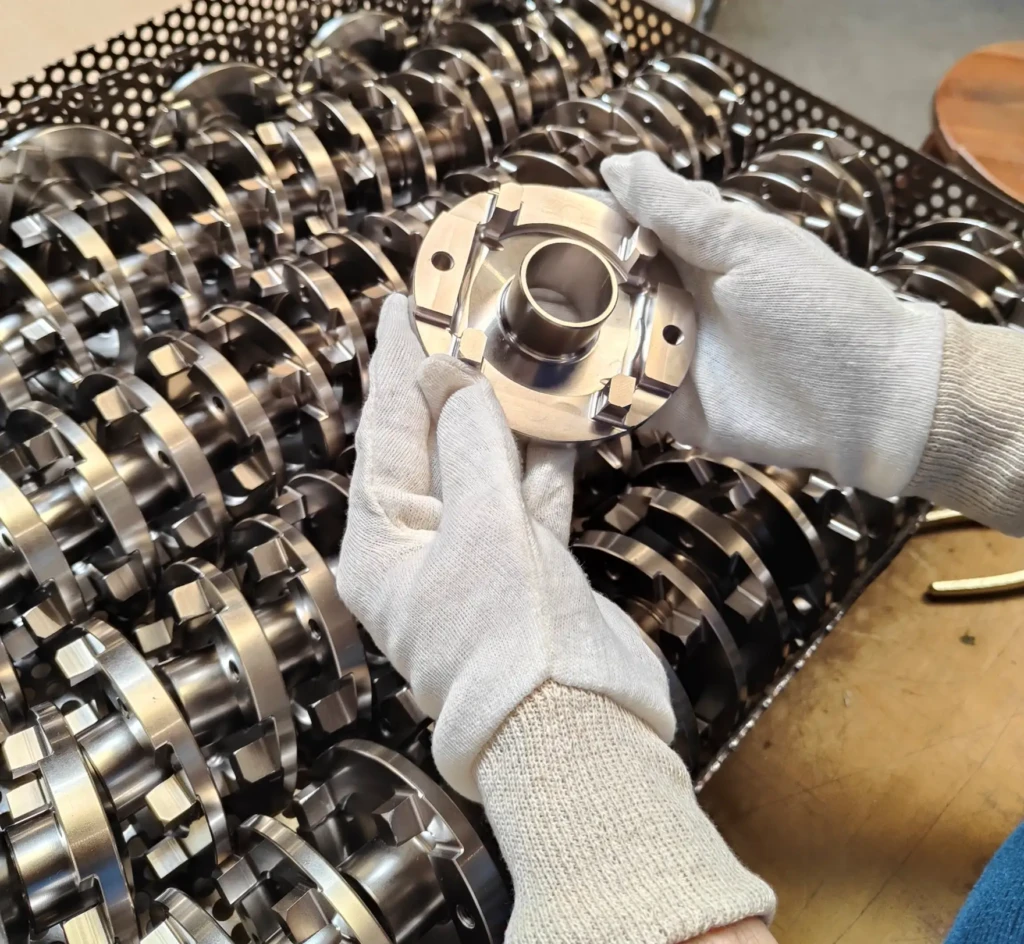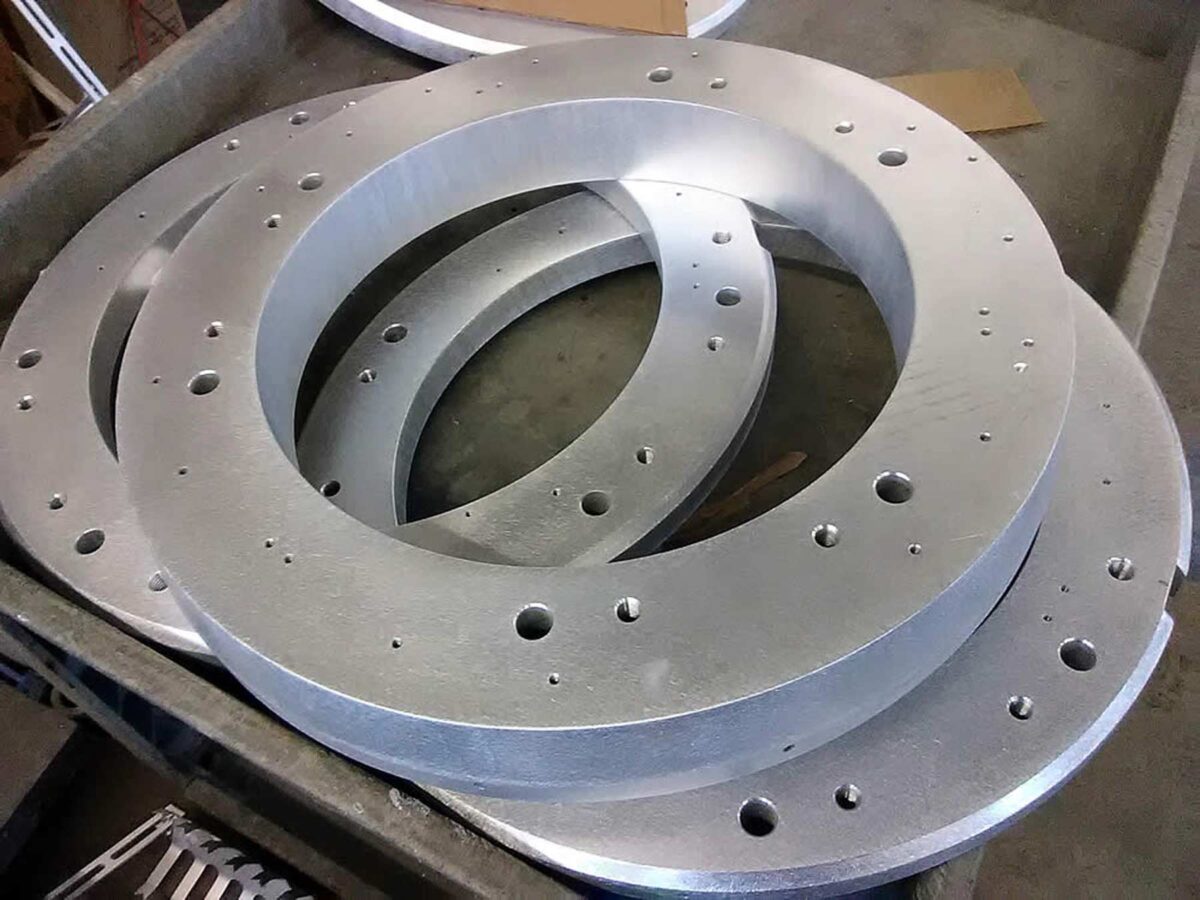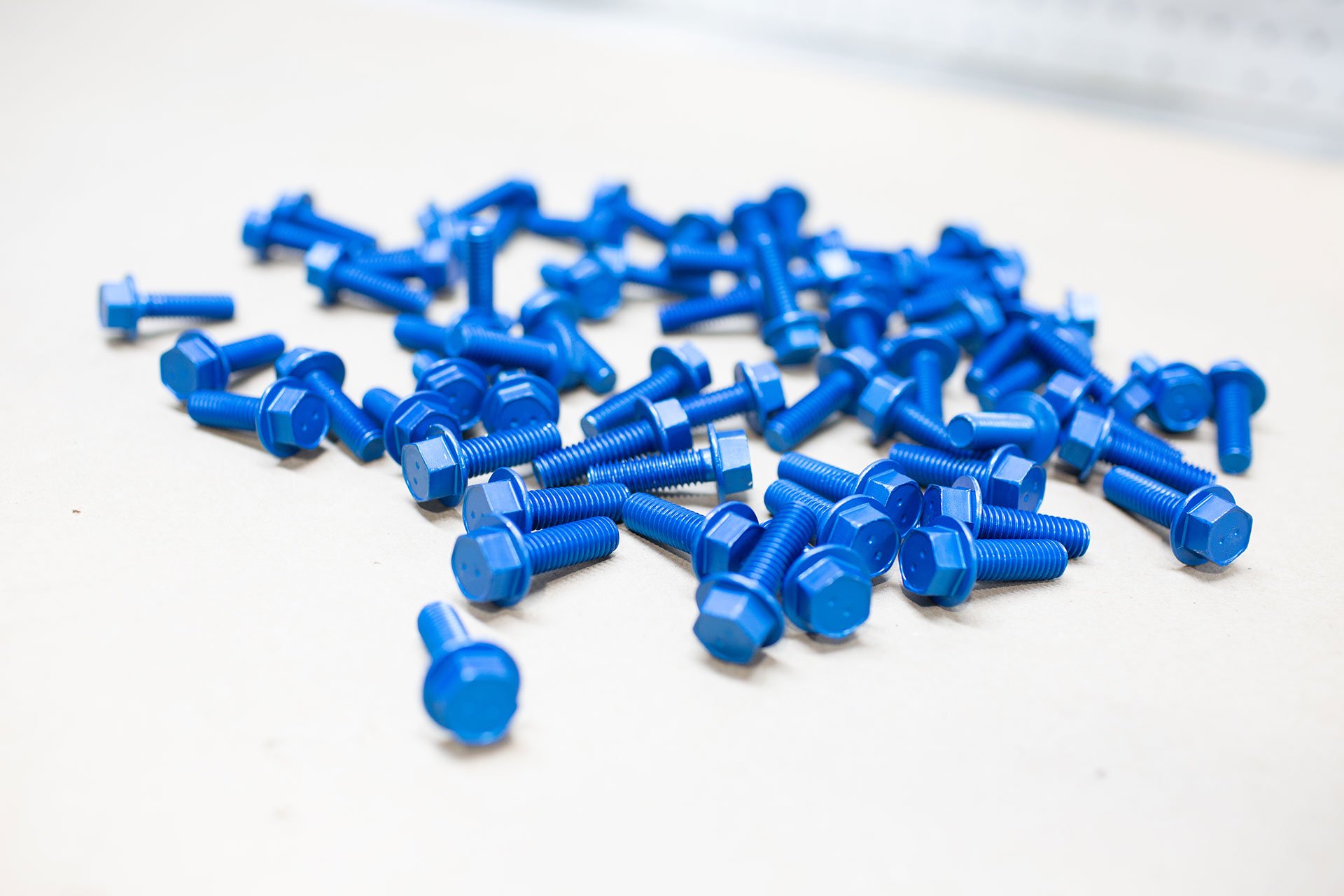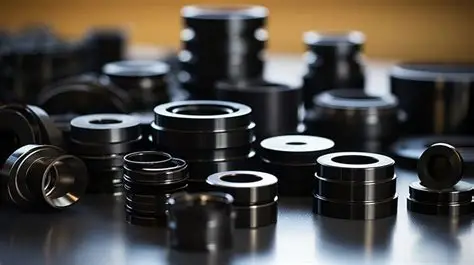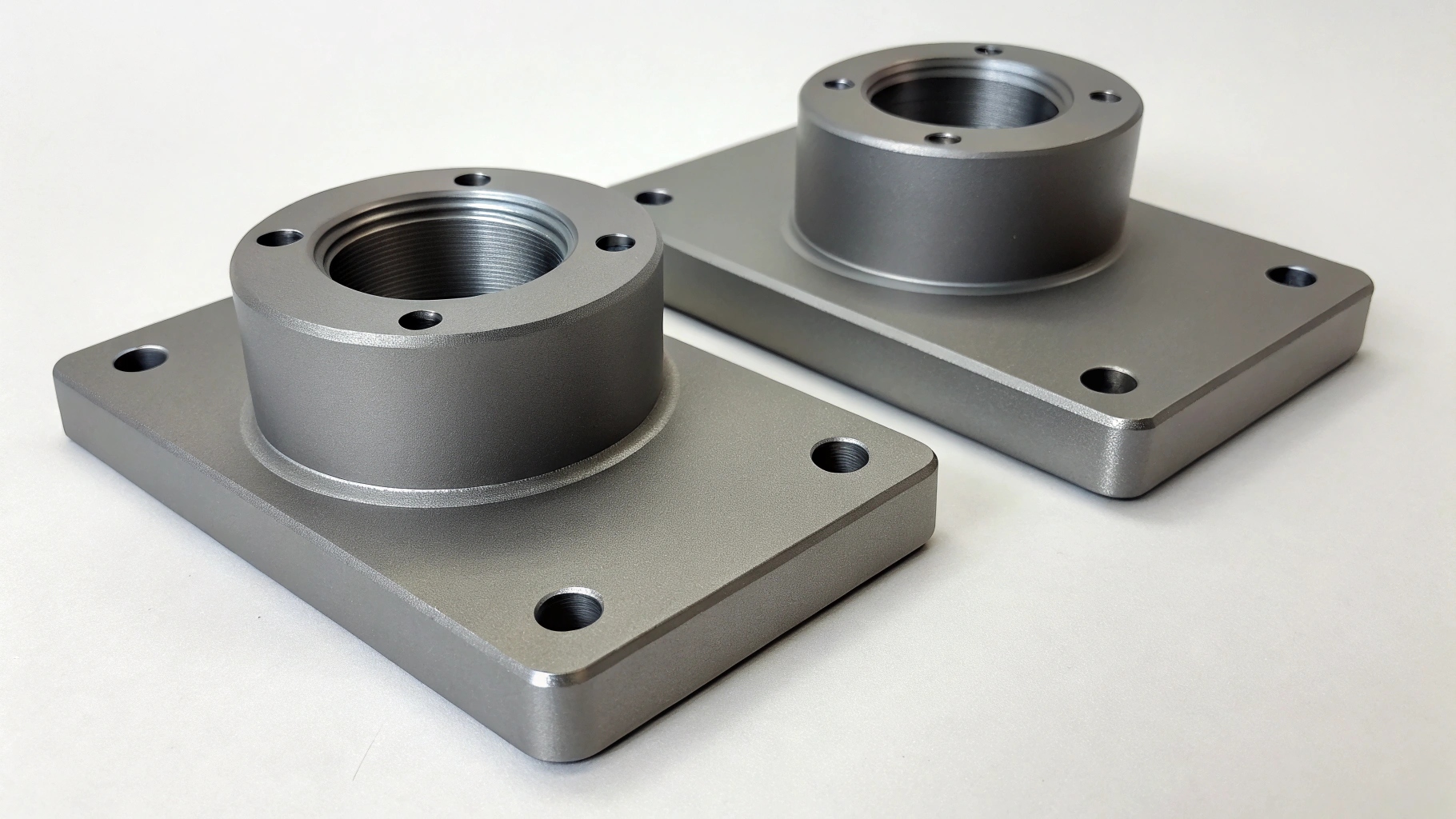PTFE (Teflon) Machining Services for Fluid Systems: Precision Manufacturing for Demanding Applications
The unique chemical and physical properties of Polytetrafluoroethylene (PTFE), commonly known by the brand name Teflon®, have established it as the material of choice for critical fluid system components across numerous industries. PTFE (Teflon) machining services for fluid systems represent a specialized manufacturing discipline that combines advanced machining technologies with deep material expertise to produce components that excel in the most challenging fluid handling environments. At JLYPT CNC Machining, we have perfected the art of providing exceptional PTFE (Teflon) machining services for fluid systems, delivering precision components for chemical processing, semiconductor manufacturing, pharmaceutical production, and food processing applications.
Understanding PTFE Material Properties for Fluid System Applications
PTFE’s exceptional combination of chemical resistance, thermal stability, and non-stick properties makes it uniquely suitable for fluid system components. Successful implementation of PTFE (Teflon) machining services for fluid systems requires comprehensive understanding of this advanced fluoropolymer’s characteristics and behavior.
Material Characteristics and Advantages
Chemical Resistance Properties
-
Virtually inert chemical behavior resisting attack by virtually all industrial chemicals
-
Excellent resistance to strong acids, bases, and solvents including hydrochloric acid, sulfuric acid, and sodium hydroxide
-
Superior performance in oxidizing environments where other materials would degrade
-
Non-wetting surface characteristics preventing adhesion and buildup of process materials
Thermal and Physical Properties
-
Wide service temperature range from -200°C to +260°C (-328°F to +500°F)
-
Excellent dielectric properties with volume resistivity >10¹⁸ ohm-cm
-
Low coefficient of friction (0.04-0.10) providing natural lubricity
-
Non-flammability with UL 94 V-0 rating and LOI of 95%
PTFE Grades for Specific Fluid System Applications
Virgin PTFE
-
Pure polymer form offering maximum chemical purity and electrical properties
-
Excellent for semiconductor and pharmaceutical applications requiring ultra-purity
-
Superior dielectric properties for electrical insulation in fluid systems
-
FDA compliance for food contact and medical applications
Reinforced PTFE Compounds
-
Glass-filled PTFE (5-25% glass fiber) for improved mechanical strength and wear resistance
-
Carbon-filled PTFE for enhanced conductivity and reduced deformation under load
-
Bronze-filled PTFE for superior wear resistance and thermal conductivity
-
Stainless steel-filled PTFE for specialized chemical and mechanical requirements
Modified PTFE Variants
-
TFM™ PTFE with improved weldability and reduced creep
-
NXT PTFE with enhanced permeability resistance and purity
-
PFA (Perfluoroalkoxy) for improved melt processability while maintaining PTFE properties
-
FEP (Fluorinated Ethylene Propylene) for similar chemical resistance with melt processability
Table: PTFE Material Properties for PTFE (Teflon) Machining Services for Fluid Systems
| Property | Virgin PTFE | 25% Glass Filled | 15% Graphite Filled | Test Method |
|---|---|---|---|---|
| Tensile Strength (psi) | 3,000-5,000 | 2,500-3,500 | 2,000-2,800 | ASTM D638 |
| Compressive Strength (psi) | 1,700 | 3,500 | 2,800 | ASTM D695 |
| Coefficient of Friction | 0.04 | 0.10 | 0.08 | ASTM D1894 |
| Continuous Service Temp (°F) | 500 | 500 | 500 | – |
| Chemical Resistance | Excellent | Excellent | Excellent | – |
Advanced Machining Strategies for PTFE Fluid System Components
The successful implementation of PTFE (Teflon) machining services for fluid systems requires specialized machining strategies that account for the material’s unique characteristics and the precision requirements of fluid handling components.
Tooling Selection and Optimization
Cutting Tool Technology
-
Sharp, high-positive rake tools with polished surfaces to prevent material tearing
-
Specialized tool geometries designed specifically for PTFE machining characteristics
-
Carbide tooling with sharp edges to minimize deformation forces
-
Diamond-coated tools for extended tool life in high-volume production
Tool Geometry Optimization
-
High rake angles (15-20°) for clean material separation and reduced cutting forces
-
Polished flutes and faces to prevent material adhesion during machining
-
Reduced contact surfaces to minimize heat buildup in the workpiece
-
Specialized clearance angles to prevent rubbing and material deformation
Machining Parameter Optimization
Speed and Feed Strategy
Precision PTFE (Teflon) machining services for fluid systems requires carefully calibrated machining parameters:
Milling Operations
-
Surface speeds: 300-600 SFM for optimal surface finish and dimensional control
-
Feed rates: 0.002-0.008 inches per tooth based on feature requirements
-
Depth of cut: 0.010-0.150 inches depending on tool strength and feature stability
-
Stepover percentages: 10-40% of tool diameter based on surface finish requirements
Turning Operations
-
Surface speeds: 400-800 SFM for superior surface quality in fluid contact surfaces
-
Feed rates: 0.001-0.006 inches per revolution for precision finishing
-
Depth of cut: 0.005-0.080 inches based on feature requirements and tool strength
-
Tool approach optimization for specific fluid system component geometries
Table: Machining Parameters for PTFE (Teflon) Machining Services for Fluid Systems
| Operation Type | Speed (SFM) | Feed (IPT) | DoC (inches) | Tool Material | Cooling Method |
|---|---|---|---|---|---|
| Rough Milling | 400-600 | 0.005-0.010 | 0.08-0.20 | Sharp Carbide | Compressed Air |
| Finish Milling | 500-700 | 0.002-0.005 | 0.005-0.025 | Polished Carbide | Compressed Air |
| Contour Milling | 450-650 | 0.003-0.007 | 0.015-0.060 | DLC Coated | Compressed Air |
| Rough Turning | 500-700 | 0.004-0.008 | 0.040-0.120 | Sharp Carbide | Compressed Air |
| Finish Turning | 600-800 | 0.001-0.004 | 0.002-0.015 | Diamond Coated | Compressed Air |
Technical Considerations for PTFE (Teflon) Machining Services for Fluid Systems
The production of precision fluid system components requires addressing several material-specific challenges through advanced machining techniques in PTFE (Teflon) machining services for fluid systems.
Thermal Management and Dimensional Stability
Heat Generation Control
-
Consistent chip load maintenance to prevent localized overheating and material degradation
-
Compressed air cooling to dissipate heat without introducing contamination
-
Strategic tool path planning to distribute cutting forces and minimize heat concentration
-
In-process temperature monitoring for critical sealing surfaces and thin-walled sections
Dimensional Accuracy Assurance
-
Thermal stabilization periods between machining operations to allow for stress relaxation
-
Spring pass implementation for final dimensional accuracy in precision fluid passages
-
Multiple finishing strategies with progressively reduced material removal rates
-
In-process measurement to compensate for any material memory or relaxation effects
Surface Integrity for Fluid System Performance
Surface Finish Optimization
-
Progressive stepdown reduction for improved surface texture in fluid contact surfaces
-
High-speed machining strategies with minimal tool engagement for superior finishes
-
Specialized tool paths including trochoidal milling for complex internal passages
-
Micro-finishing operations for critical sealing and bearing surfaces in fluid systems
Feature Definition and Edge Quality
-
Sharp internal corners with specialized tooling for precise fluid passage definition
-
Burr minimization techniques through optimized tool geometries and machining parameters
-
Surface treatment options including specialized smoothing processes for ultra-clean surfaces
-
Edge break optimization for components requiring specific flow characteristics
Quality Assurance for PTFE (Teflon) Machining Services for Fluid Systems
The manufacturing of precision fluid system components demands rigorous quality control systems specifically designed for PTFE (Teflon) machining services for fluid systems.
Dimensional Metrology and Verification
Advanced Measurement Technologies
-
Coordinate measuring machines with temperature compensation for accurate dimensional verification
-
White light scanning systems for complex contoured surfaces and form verification
-
Surface roughness testers with both contact and non-contact capabilities
-
Optical comparators for rapid 2D feature verification and geometric tolerance assessment
Surface Quality Assessment
-
Surface roughness measurement using profilometers and optical interferometry
-
Visual inspection under controlled lighting conditions for defect detection
-
Microscope examination for edge quality and micro-feature verification
-
Wettability testing for surface energy characterization in specific fluid applications
Material and Performance Validation
Physical Property Verification
-
Durometer testing for material hardness verification and consistency
-
Density measurement to ensure material consistency and proper processing
-
Color consistency evaluation for quality control and material identification
-
Dimensional stability testing under varying temperature conditions
Functional Performance Testing
-
Helium leak testing for critical sealing components in high-purity systems
-
Pressure testing to validate component integrity under operating conditions
-
Flow testing for components with complex fluid passage geometries
-
Extractables testing for pharmaceutical and semiconductor applications
Applications of PTFE (Teflon) Machining Services for Fluid Systems
The unique properties of PTFE make it ideal for numerous applications requiring PTFE (Teflon) machining services for fluid systems across multiple industries.
Chemical Processing Industry
Critical Components
-
Chemical reactor liners and agitation components
-
Valve seats and seals for corrosive chemical service
-
Pump components including impellers and wear rings
-
Pipe liners and fittings for aggressive chemical transport
Semiconductor Manufacturing
High-Purity Components
-
Wafer processing components requiring ultra-purity and chemical resistance
-
Chemical distribution system valves and fittings
-
Gas handling system components for corrosive specialty gases
-
Wet bench components for acid and solvent processing
Pharmaceutical and Bioprocessing
Sanitary Components
-
Bioreactor components requiring sterilization compatibility
-
Process piping components for pharmaceutical manufacturing
-
Filtration system elements and housings
-
Sampling system components for sterile processing
Food and Beverage Processing
Sanitary Applications
-
Food processing equipment components requiring FDA compliance
-
Beverage dispensing system components
-
Sanitary valve and pump components
-
Processing line components for corrosive food products
Case Studies: Successful PTFE (Teflon) Machining Services for Fluid Systems
Case Study 1: Semiconductor Chemical Distribution Valves
Challenge: A semiconductor equipment manufacturer required PTFE (Teflon) machining services for fluid systems specifically for ultra-high purity chemical distribution valves that needed to handle aggressive acids and solvents with zero contamination and particle generation.
PTFE (Teflon) Machining Services for Fluid Systems Solution:
JLYPT implemented a comprehensive manufacturing strategy:
-
Multi-axis CNC machining with specialized tooling for complex internal flow passages
-
Cleanroom machining environment to maintain semiconductor-grade cleanliness
-
Progressive finishing operations to achieve ultra-smooth surface finishes for fluid contact surfaces
-
100% inspection of critical dimensions and surface quality
-
Extractables testing to validate material purity and compatibility
Results:
-
Achieved surface finishes of 4 μin Ra on all fluid contact surfaces
-
Helium leak testing passed at 1×10⁻⁹ atm-cc/sec leak rate
-
Extractables testing demonstrated compliance with SEMI F57 standards
-
Successfully implemented in advanced semiconductor manufacturing facilities
Case Study 2: Pharmaceutical Bioreactor Sealing Components
Challenge: A pharmaceutical company needed PTFE (Teflon) machining services for fluid systems for large-diameter sealing components in single-use bioreactors. The components required sterilization compatibility, USP Class VI compliance, and dimensional stability across sterilization cycles.
PTFE (Teflon) Machining Services for Fluid Systems Solution:
Our specialized approach included:
-
Large-format CNC machining for components up to 36 inches in diameter
-
Specialized fixturing to prevent distortion during machining of thin-walled sections
-
Surface enhancement processes to achieve pharmaceutical-grade surface finishes
-
Cleanroom assembly and packaging for pharmaceutical compliance
-
Validation testing including autoclave cycling and extractables testing
Results:
-
Achieved dimensional stability within 0.002 inches per foot through multiple sterilization cycles
-
Surface finish of 8 μin Ra on all product contact surfaces exceeded requirements
-
USP Class VI compliance achieved with complete documentation
-
Successfully implemented in commercial-scale biopharmaceutical production
Case Study 3: Chemical Processing Pump Components
Challenge: A chemical processing equipment manufacturer required PTFE (Teflon) machining services for fluid systems for custom pump components that needed to handle concentrated sulfuric acid at elevated temperatures with minimal wear and maximum chemical resistance.
PTFE (Teflon) Machining Services for Fluid Systems Solution:
JLYPT’s comprehensive manufacturing strategy incorporated:
-
Multi-operation machining with complete part processing in optimized sequence
-
Specialized tooling strategies for complex internal geometries and sealing surfaces
-
Reinforced PTFE materials selection for improved mechanical performance
-
Performance testing under simulated chemical processing conditions
-
Quality assurance with statistical process control on all critical dimensions
Results:
-
Achieved dimensional accuracy of 0.0005 inches on critical sealing surfaces
-
Wear testing demonstrated 12,000+ hours of continuous operation in concentrated acid service
-
50% longer service life compared to previous component designs
-
Successfully implemented in demanding chemical processing applications
Future Trends in PTFE (Teflon) Machining Services for Fluid Systems
The application of PTFE in fluid system components continues to evolve with advancing technologies and emerging requirements across industries.
Advanced Manufacturing Technologies
Smart Manufacturing Integration
-
IoT-enabled machining centers for real-time process optimization and monitoring
-
Adaptive control systems with in-process adjustment capabilities based on material behavior
-
Predictive maintenance using machine learning algorithms for tool life optimization
-
Digital twin technology for virtual process validation and performance prediction
Hybrid Manufacturing Approaches
-
Additive and subtractive integration for complex component geometries with optimized material properties
-
In-situ quality verification with closed-loop correction systems
-
Automated material handling for high-volume production of precision components
-
Advanced cooling technologies for improved dimensional control in PTFE machining
Material Science Advancements
Next-Generation Fluoropolymer Formulations
-
Enhanced mechanical properties for more demanding structural applications in fluid systems
-
Improved permeability resistance for ultra-high purity applications
-
Specialized additive packages for specific industry requirements
-
Sustainable fluoropolymer variants with improved environmental profile
According to research from The Fluoropolymers Division of the Society of Plastics Engineers, advanced fluoropolymers are increasingly being developed with enhanced properties to meet the demanding requirements of next-generation fluid systems in semiconductor, pharmaceutical, and energy applications.
Conclusion: Excellence in PTFE (Teflon) Machining Services for Fluid Systems
The manufacturing of PTFE components for fluid systems represents a specialized field that demands exceptional technical expertise, advanced equipment, and rigorous quality control. Success in providing PTFE (Teflon) machining services for fluid systems requires not only mastery of machining processes but also deep understanding of material behavior, application requirements, and performance validation.
At JLYPT CNC Machining, our commitment to advancing PTFE (Teflon) machining services for fluid systems ensures that our clients receive components that excel in demanding fluid handling environments while optimizing manufacturing efficiency and cost-effectiveness. The future of PTFE component manufacturing will continue to evolve with material advancements, digital technologies, and smart manufacturing approaches driving improved capabilities and performance.
For organizations seeking expert partners in PTFE (Teflon) machining services for fluid systems, Jingliyang Precision Technology’s CNC machining services offers comprehensive solutions with demonstrated expertise in precision fluoropolymer manufacturing for demanding fluid system applications.



